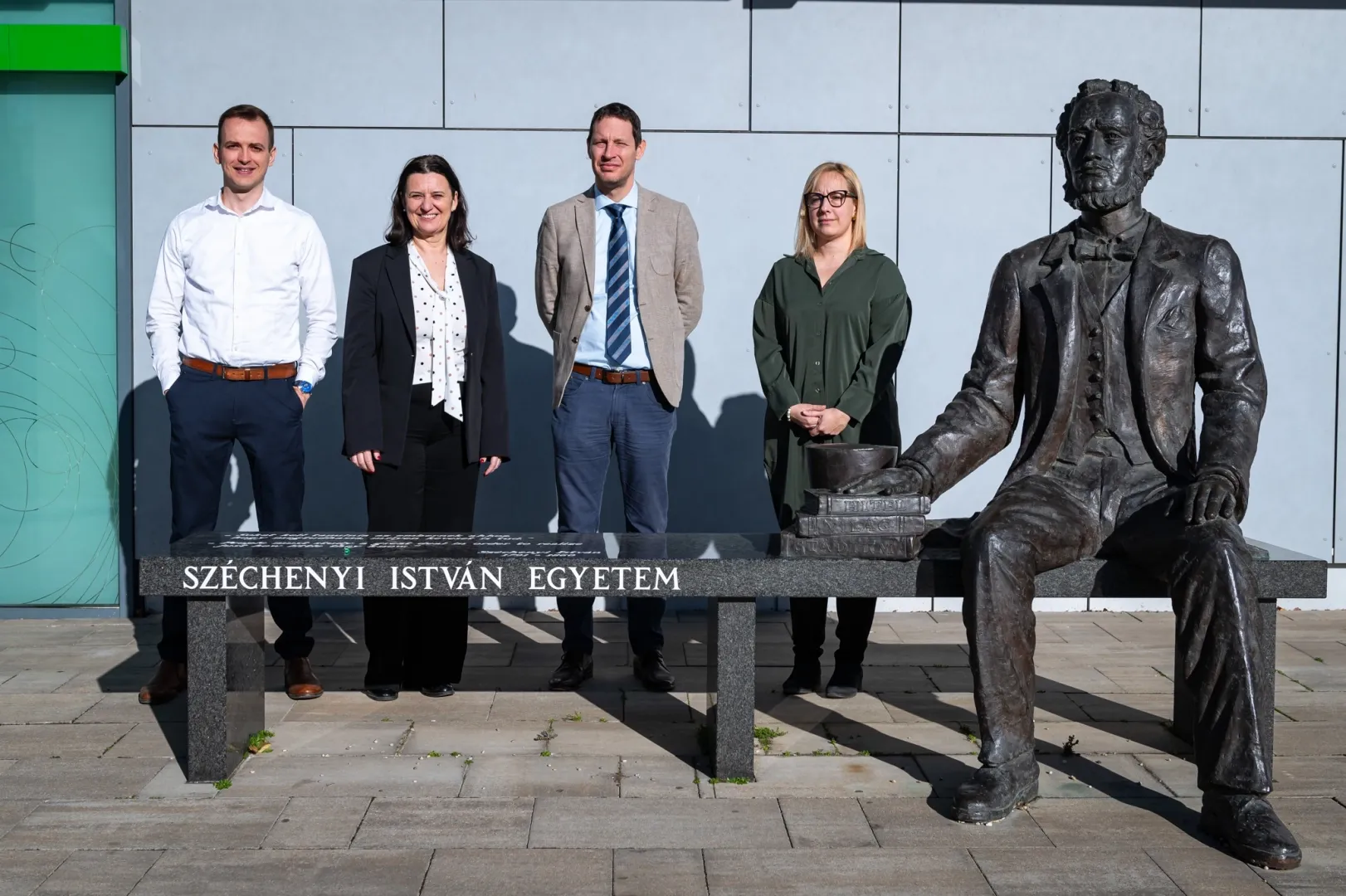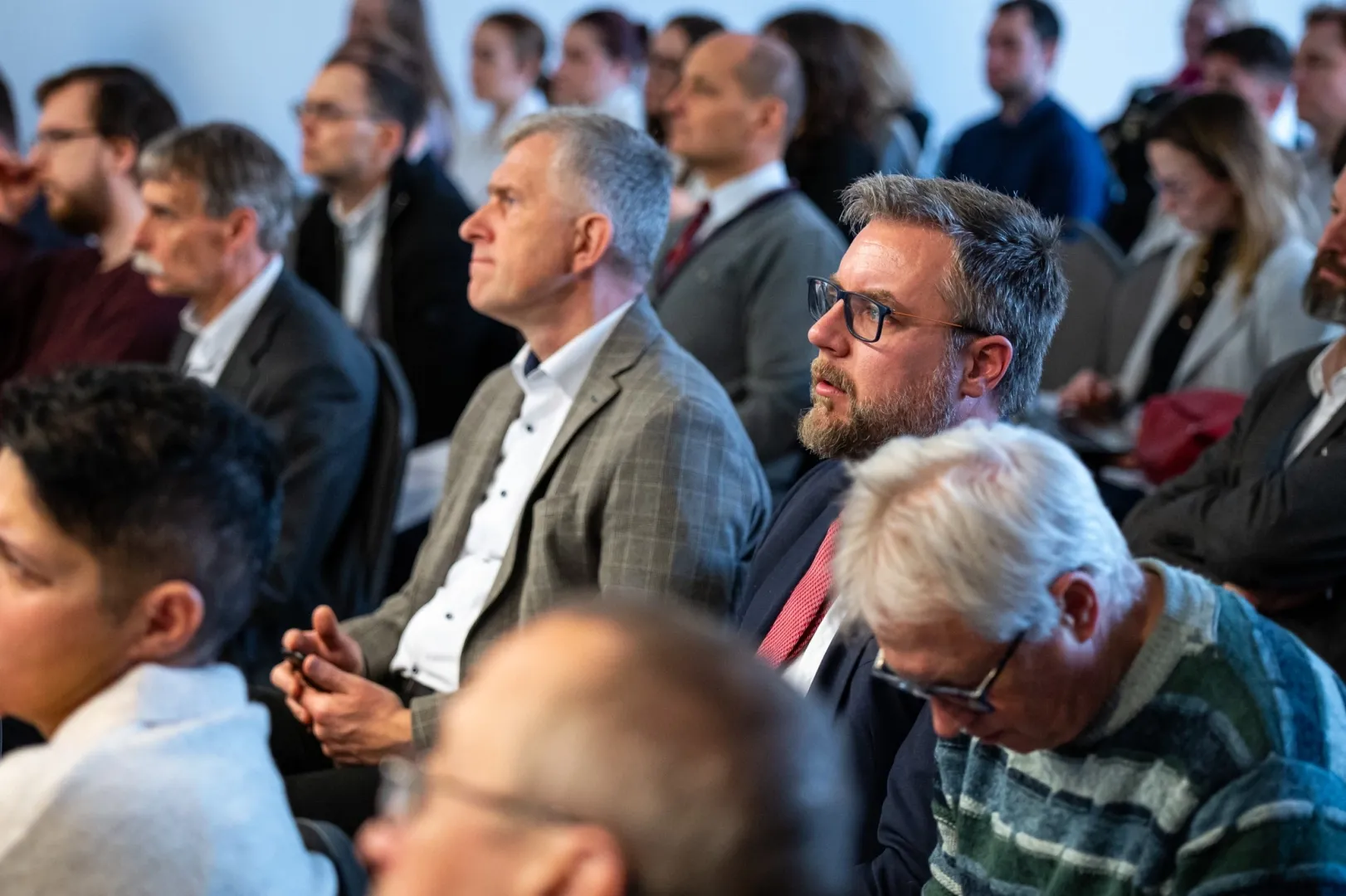Innovative Solutions to the Forefront: SZE Holds Training Development Conference for Educators
For the third time, Széchenyi István University held its training development conference to present recent innovations and inform its educators and partners about expected future directions. In addition to the advantages of the University ecosystem, the event covered competence assessments, project-based modules, and initiatives aimed at fostering student socialisation.
Széchenyi István University is committed to providing academic programmes that offer valuable knowledge in line with labour market demands. It equips its students with up-to-date knowledge and career-enhancing opportunities, significantly supported by its continuous academic development activities. Last year, the institution announced its long-term educational reform, and as part of this, it held this conference for the third time for its educators, partner companies, and collaborating vocational and public education institutions. The programme was implemented within the framework of the “Széchenyi Plan Plus RRF-2.1.2.-21-2022-00028” project, titled "Infrastructure and Skill Development for Practice-Oriented Training at Széchenyi István University".
"One of our key strategic goals is to provide high-quality degrees that enable our students to quickly enter the labour market and become successful in their professions. To achieve this, it is crucial to integrate industrial and corporate needs into our training development. In addition to involving expert teams, we also support this endeavour with educational methodology innovations such as project-based education," explained Dr Zsolt Kovács, Vice-President for General and Educational Affairs, at the event.
He highlighted that the University possesses a unique ecosystem open to innovation, in which students play an integral role. "In this system, we offer numerous alternatives for young students, ensuring they find the most suitable option for them. By taking advantage of opportunities provided by student teams, specialist colleges, projects, and research, they can progress towards launching their own start-up, pursuing a scientific research career, or achieving a successful career with one of our corporate partners," he summarised.

At the plenary session of Széchenyi István University’s training development conference, presentations were given by Szabolcs Kiss, Head of the Student Project Support Programme; Dr Éva Happ, Head of Training Development at the university; Dr Zsolt Kovács, Vice-President for General and Educational Affairs; and Eszter Petra Májer, Head of the Alumni and Wellbeing Centre (Photo: Máté Dudás)
Dr Éva Happ, Head of Training Development at the University, stated that over the past year, the institution has taken significant steps in the field of innovative, practice-oriented educational development. "Following a review of the necessary professional and social skills, we have initiated the establishment of advisory boards for each programme, incorporating the feedback of the University Student Union. We support the start of University life with a socialisation semester, and we consider the competency assessment at the beginning of the academic year essential, as it provides a clearer picture of the initial abilities of first-year students," she detailed. She also added, "Following the professional review of subjects, we have also updated the curriculum structures, and from September, the project-based educational module will become mandatory for twelve selected programmes."
The competence assessment process was presented by Eszter Petra Májer, Head of the Alumni and Wellbeing Centre, who highlighted the necessity of skill development aligned with labour market needs. "At the beginning of their first semester, students will complete a test measuring eight key competencies, which they will encounter again upon graduation. The entry assessment provides lecturers with additional information, while the exit assessment offers feedback on the effectiveness of our training programmes and enhances graduates’ self-awareness, thereby providing them with an advantage in the job market," she outlined the benefits. She also revealed that the most important competencies will be developed within both mandatory and elective subjects in the timetable, with the socialisation semester forming a key element of this initiative.

Held for the third time, this professional forum introduced Széchenyi University’s educators to the most significant directions in educational development (Photo: Máté Dudás)
One of the key areas of the educational reform is the introduction of project-based subjects into the curricula of bachelor’s and master’s programmes. The pilot academic year has already commenced: nearly 250 students participated in the Student Project Support Programme during the autumn semester. "In the previous semester, we introduced an optional project-based subject in twelve bachelor’s programmes. According to feedback from lecturers, the initiative has been highly beneficial, with students enthusiastically solving practical tasks. One of the greatest advantages of the programme is that, in addition to acquiring professional knowledge, participants also developed their communication and social skills, learned to work in teams, and managed conflicts and challenges effectively," explained Szabolcs Kiss, Head of the programme. He emphasised that in line with long-term objectives, by 2030, every programme’s curriculum will include a project-based educational module.











